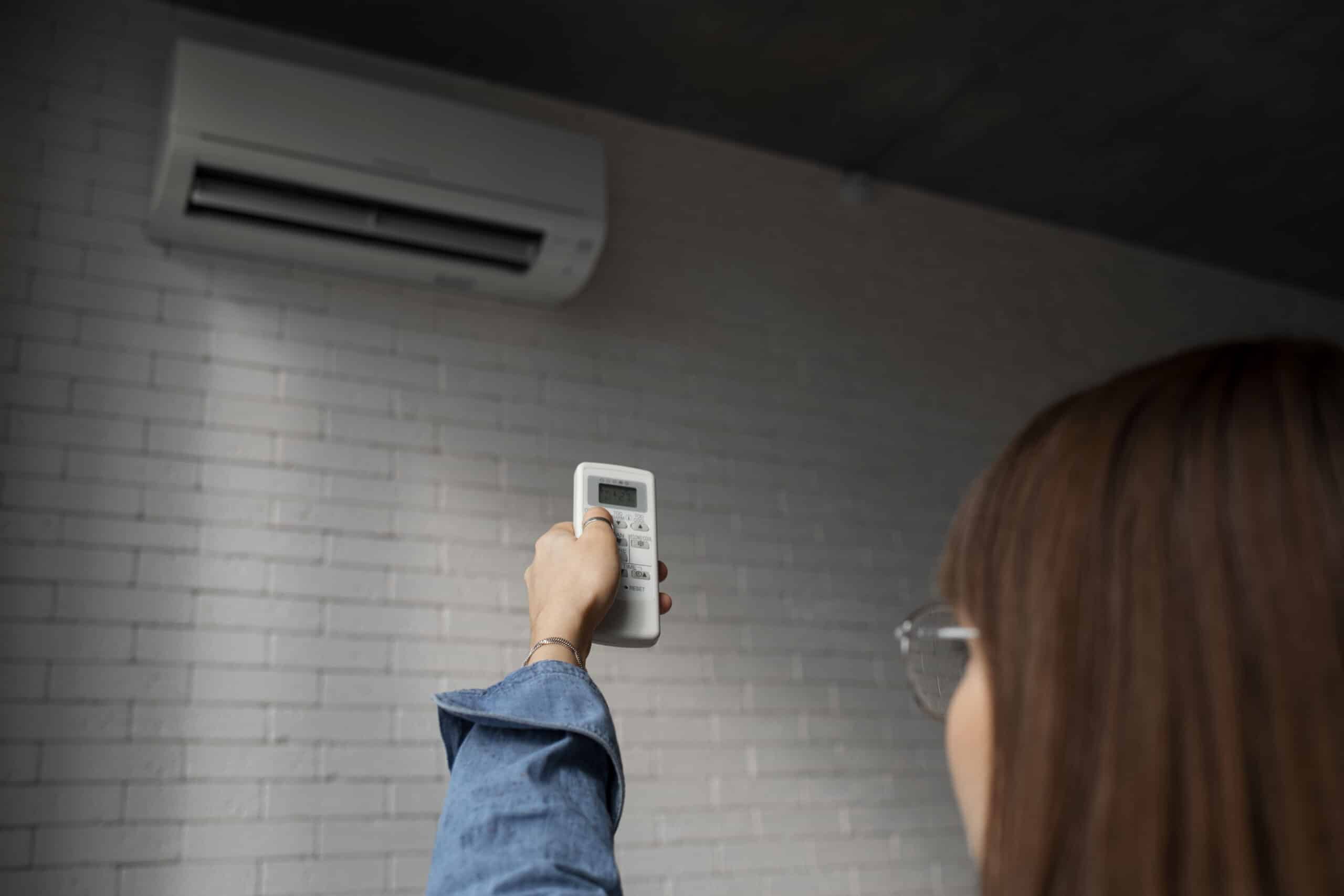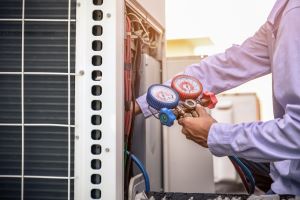High-Quality Repairs for Any HVAC Issues Provided by DMAKS HVAC.
Wiki Article
Just How to Choose the Right HVAC System for Your Needs
Picking the appropriate Heating and cooling system is a critical decision that calls for careful consideration of numerous variables. The myriad of system kinds offered can complicate this process, leading one to wonder which path eventually leads to optimum convenience and performance.Evaluate Your Home Size
Examining your home size is a critical first step in picking the appropriate A/c system. A Cooling and heating system that is as well tiny will battle to maintain comfortable temperature levels, leading to increased energy usage and use on the device.
To accurately analyze your home size, gauge the square footage of each area, considering variables such as ceiling height and the format. Additionally, take into consideration the insulation quality and the variety of windows, as these elements affect thermal performance. Residences with open floor strategies might need various system arrangements contrasted to those with many divided areas.
Utilizing the Guidebook J tons calculation method can provide an extra specific quote of your a/c requires. This technique make up different aspects, including neighborhood climate, solar gain, and tenancy patterns. By meticulously examining these elements, you can guarantee that your picked heating and cooling system is appropriately sized, resulting in improved convenience, energy effectiveness, and durability of the tools.
Determine Your Budget Plan
Determining your spending plan is a critical step in the a/c system option process, as it sets the parameters for your options - DMAKS HVAC. A heating and cooling system is a substantial financial investment, and understanding your financial restrictions will certainly help tighten down selections that fit within your meansBegin by evaluating not just the first acquisition rate yet also setup costs, which can vary dramatically depending on the complexity of the job. Furthermore, consider recurring expenditures such as upkeep, fixings, and power usage. A system might show up economical originally yet can cause greater prices over time if it is much less efficient.
It is a good idea to designate a contingency fund for unanticipated expenses that may develop during setup or initial system adjustments (DMAKS HVAC). Additionally, check out financing options or discounts that might be offered, as these can reduce the problem of ahead of time prices
Ultimately, having a clear spending plan enables you to engage with cooling and heating professionals more efficiently, guaranteeing you receive tailored guidance that aligns with your monetary objectives and home requirements. By being diligent about your budget plan, you can make informed choices that improve comfort without endangering financial stability.
Evaluate Energy Effectiveness
Energy effectiveness plays a vital role in the general efficiency and cost-effectiveness of your cooling and heating system. When selecting a system, it is vital to consider its energy performance rankings, as these figures straight influence your utility bills and ecological footprint. Look for systems with a high Seasonal Energy Effectiveness Proportion (SEER) for cooling down and a high Annual Gas Usage Efficiency (AFUE) score for heating. Higher ratings suggest higher effectiveness, meaning even more convenience for less energy intake.In addition, think about click reference the Energy Celebrity qualification, which represents that the system meets rigid effectiveness standards established by the Epa. Purchasing a Power Star-rated a/c system can bring about substantial cost savings over time, specifically in locations with severe temperature level changes.
One more variable to assess is the system's size and capacity. An oversized or undersized unit can cause inefficiency and increased power expenses. DMAKS HVAC. Proper sizing, typically established with a Hand-operated J lots estimation, makes sure that the system operates at optimal efficiency


Think About Climate and Environment
When choosing an a/c system, it is critical to take into consideration the neighborhood climate and ecological problems, as these variables considerably affect the system's performance and efficiency. Various areas experience differing temperature level extremes, moisture degrees, and seasonal modifications, every one of which effect home heating and cooling demands.
Additionally, regional ecological aspects, such as air quality and possible allergens, should educate your selection. Equipments furnished with sophisticated purification technologies can assist reduce contaminants and provide cleaner air. In addition, consider the energy resources available in link your area-- some cooling and heating systems are much more reliable when powered by gas or eco-friendly energy sources.
Inevitably, aligning your heating and cooling system option with your neighborhood climate and environmental factors to consider will certainly result in improved convenience, boosted efficiency, and lower energy prices.
Explore System Kind and Features
As property owners look for to maximize convenience and efficiency, exploring the different types of a/c systems and their one-of-a-kind features becomes vital. The primary kinds of a/c systems consist of main air conditioning, warmth pumps, ductless mini-split systems, and heaters. Each system offers distinctive benefits customized to various demands and choices.Air conditioning systems provide consistent air conditioning throughout a home, making them ideal for larger spaces. Heatpump function as both heating and cooling options, using electrical energy to move warm, which can cause reduced power expenses. Ductless mini-split systems are ending up being progressively prominent because of their flexibility and ease of installment, permitting home owners to regulate the temperature level in private rooms without extensive ductwork.

Conclusion
Finally, picking the appropriate heating and cooling system requires mindful consideration of various elements, consisting of home dimension, spending plan restraints, power efficiency, local climate, and offered system kinds. A thorough analysis of these elements guarantees ideal convenience and cost-effectiveness. By adhering to an organized strategy, homeowners can make educated choices that line up with their details needs and choices, ultimately bring about enhanced indoor air quality and energy cost savings.Report this wiki page